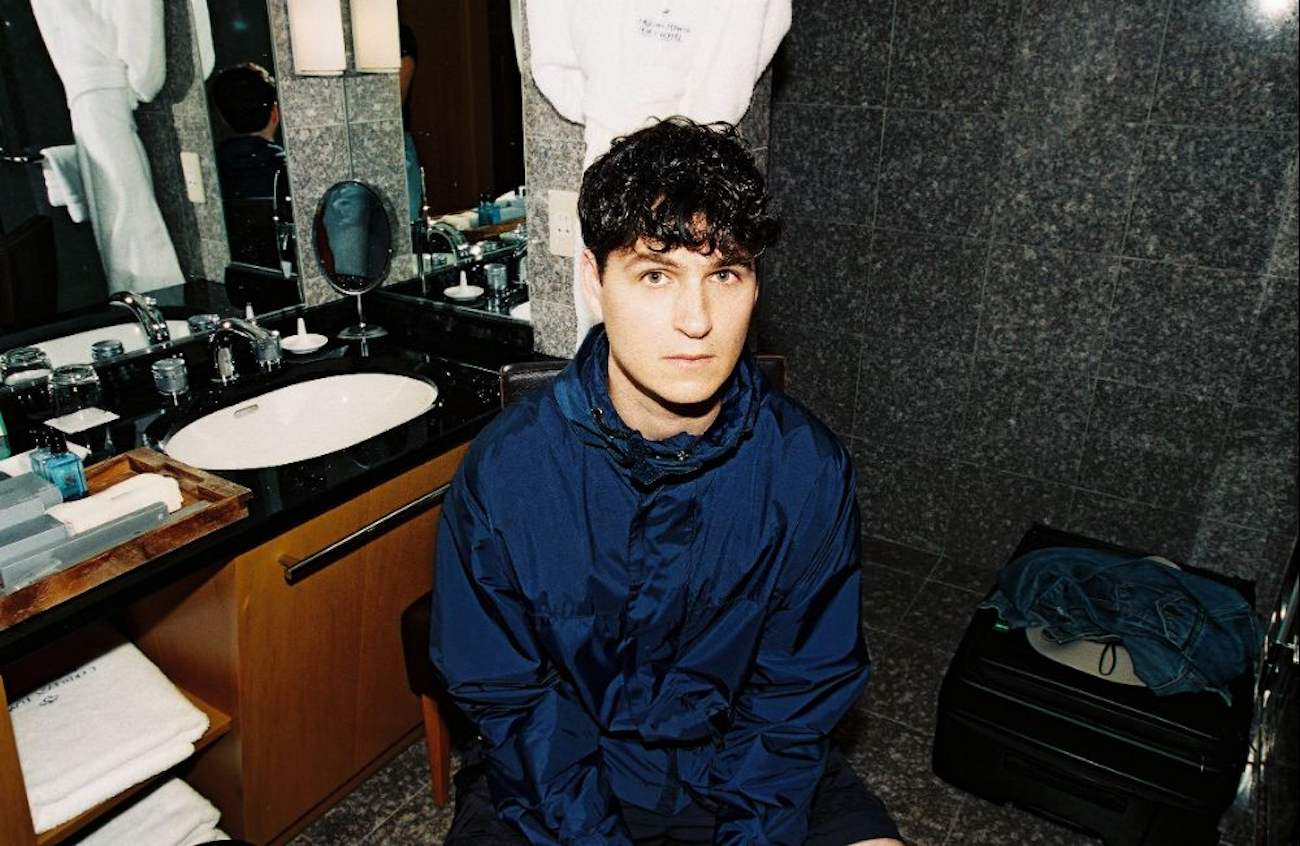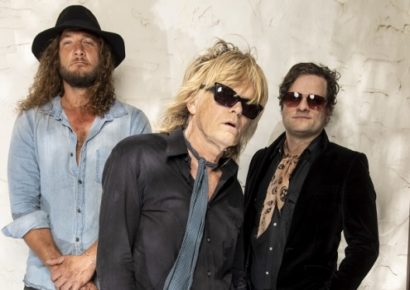Few bands harbour the same level of mystery and intrigue.
In the past 13 years, Vampire Weekend have released just three albums, with number four on the way after a six-year silence. So why are we still so hooked? Bands can so easily fall victim to the out of sight, out of mind mentality, yet it seems Vampire Weekend have grown more alluring the longer they’ve kept us waiting.
From the get-go, Vampire Weekend were worlds apart from other rock outfits. The band comprised four Ivy League college students who, dressed in boat shoes and button-ups tucked into chinos, looked as if they’d been plucked straight from campus. In fact, they had. The quartet began playing during their days at Columbia University in 2006 before releasing their self-titled debut album two years later. The album’s cover image features a polaroid taken at one of Vampire Weekend’s earliest gigs inside St. Anthony Hall where an elite fraternity and literary society hybrid was homed.
Vampire Weekend is easy to misconstrue as elitist or pretentious. Between lines like “you spilled kefir on your keffiyeh” and a song titled ‘Oxford Comma’, the band could have easily alienated their audience, though it is these very quirks that had Vampire Weekend’s ‘Cape Cod Kwassa Kwassa’ appearing in Rolling Stone’s 100 Best Songs of the Year within a year of the band forming.
If their clean-cut image and brand of intelligent tongue-in-cheek songwriting didn’t set them aside from the crowd, Vampire Weekend’s crisp pop-rock sound certainly did the trick. The band’s members had bonded over a shared love of African music prior to their formation and it became a staple of their sound. The upbeat, rhythmic melodies and pristine production for which they became notorious were not a result of chance, but rather a carefully calculated tactic as part of a sonic manifesto drafted with the band’s inception. The clear vision for the sound they wished to emulate has remained steady across the years, despite natural progression, and is no doubt a major contributing factor to their success.
By the time their second album Contra came along in 2010, Vampire Weekend were already a sensation and the record debuted at No. 1 on the Billboard 200. While the band broadened their influences this time around, their light pop-oriented sound was still front and centre. Tracks like ‘California English’ deviated from their mainstream-friendly malleability with rapid, disjointed verses, digital voice modulation and abstruse lyrics. Not only did Contra stray further from the norm sonically, but Vampire Weekend also flexed their highbrow wit with obscure lyrics like “You’d remember drinkin’ horchata/You’d still enjoy it with your foot on Masada”, which the band somehow managed to shape into something easily consumable.
In 2013 came Modern Vampires of the City and we saw Vampire Weekend step into a more mature sound. The African-inspired fervour was still lurking in the shadows, albeit toned down, but topics such as death and wavering faith became the focal point. Lyrics like ‘Diane Young”s “Nobody knows what the future holds/Said it’s bad enough just getting old/Live my life in self-defense/You know I love the past, ’cause I hate suspense” and ‘Step’’s “Wisdom’s a gift but you’d trade it for youth/Age is an honour it’s still not the truth” offered a more macro perspective than that of college kids singing about on-campus shenanigans.
During that time, Vampire Weekend vocalist, guitarist and pianist Ezra Koenig said the three albums we’d seen from the band form a trilogy, and the relationship between each record is unabashedly evident.
Since then, it’s been radio silence in terms of new music. In an Instagram post in 2017, Koenig offered an explanation for the unofficial hiatus, telling fans that the year following Modern Vampires of the City was largely dedicated to touring and promoting, while 2015 served as a mental health year to recuperate from the previous releases.
“Putting three albums in stores was taxing,” he admitted. Since then, it’s been a matter of writing, recording and producing the album – no easy feat considering Koenig is a new father and has admittedly spent much of his time with his family.
The band have drip-fed information about the new album, which we now know to be titled Father of the Bride. Releasing the first new music in six years, Vampire Weekend dropped ‘Harmony Hall’ and ‘2021’ alongside the news that there will be “three two-song drops every month until the record is out”. At 18 tracks in total, that puts the ETA around April.
Judging solely on ‘Harmony Hall’ and ‘2021’, Father of the Bride looks to be yet another sonic progression. While this can be attributed in part to the timeframe between albums, the departure from Vampire Weekend founding member Rostam Batmanglij in 2016 is certain to make a mark considering his influence on the direction of the band’s sound thus far. Batmanglij did, however, collaborate on the album despite no longer being a member.
So, what is it that has kept listeners waiting patiently for six years? Bands have become irrelevant in much shorter timeframes, yet it’s as if the less accessible Vampire Weekend are, the more elusive they become. It could simply be that there aren’t any other bands in the same league as Vampire Weekend, therefore we have no other means of getting our fix, but that doesn’t seem like the whole story.
There are a few theories as to what Vampire Weekend’s secret is. While they don’t quite fit the ‘underdog’ label — they formed at a highly prestigious university — there is something to be said about a bunch of college kids dreaming up a band and reaching success before graduation. Then there is the band’s dedication to a carefully designed sound which they followed without displaying any sense of sonic constraint or predictability.
Inarguably, the pairing of Koenig and Batmanglij was always going to be a recipe for greatness. You need only listen to Koenig’s radio show Time Crisis on Apple Music’s Beats 1 to understand the extent of his passion and knowledge of music (seriously, he once dedicated a huge chunk of his show to unpacking the signature Seinfeld theme music with its composer Jonathan Wolff). Coupled with Batmanglij’s sonic dexterity, which has seen him produce tracks on albums like Frank Ocean’s Blonde and Solange’s A Seat at the Table while seeking inspiration from the sounds of classical composer Bach on his debut solo album Half-Light, their music exudes incredible depth and consideration.
As music listeners, we crave the unheard and Vampire Weekend have continuously delivered that. Their elusive quality is so addictive that we can’t help but chase another hit. They hold all the missing pieces to the puzzle. Few bands can claim having sparked such a phenomenon as Vampire Weekend and despite the anticipation surrounding Father of the Bride, it will surely be met with a microscopic level of scrutiny.
The release date of Father of the Bride is yet to be announced, but you can keep an eye on their new music here.







